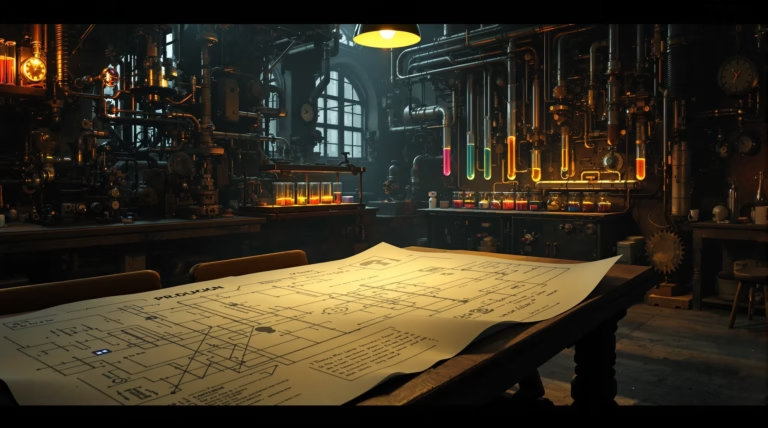What Does a Petroleum Engineer Do? Explore Their Role and Responsibilities
Discover the fascinating world of petroleum engineering, where science meets innovation in the quest for efficient energy extraction. This comprehensive guide explores the vital role these professionals play in powering our world while maintaining environmental responsibility.
Understanding the Role of a Petroleum Engineer
Petroleum engineers are essential specialists in the global energy sector who focus on extracting oil and gas resources from beneath the Earth’s surface. These professionals serve as the critical link between resource discovery and consumer delivery, applying scientific principles and cutting-edge technologies throughout the extraction process.
Operating at the convergence of geology, physics, chemistry, and engineering, petroleum engineers develop and implement methods for safe and economical hydrocarbon extraction while minimizing environmental impact. They work within multidisciplinary teams to assess drilling sites, execute extraction strategies, and optimize production systems to meet worldwide energy demands.
Overview of Petroleum Engineering
Petroleum engineering combines technical expertise with practical application in locating, extracting, and processing oil and natural gas reserves. This specialized field focuses on developing sustainable methods for accessing underground reservoirs, often located thousands of feet below the surface. The discipline integrates mechanical, chemical, and civil engineering principles with specialized knowledge of subsurface geology and fluid behavior.
These engineers manage the entire lifecycle of energy production projects, from initial exploration to ongoing production management. Their work encompasses:
- Analyzing geological data for resource assessment
- Calculating reservoir capacities and potential yields
- Designing efficient well systems
- Implementing advanced recovery techniques
- Ensuring operational safety and environmental compliance
Key Responsibilities of Petroleum Engineers
The daily duties of petroleum engineers encompass a wide range of technical activities:
- Evaluating potential oil and gas reservoirs for economic viability
- Analyzing geological data to identify optimal drilling locations
- Designing comprehensive drilling plans for specific geological formations
- Overseeing well completion processes and equipment installation
- Monitoring production rates and analyzing performance data
- Developing solutions for reservoir management challenges
- Leading research efforts in extraction technology advancement
- Ensuring compliance with environmental regulations
Skills and Qualifications Required for Petroleum Engineers
Success in petroleum engineering requires a unique blend of technical expertise and interpersonal skills. Essential competencies include:
- Strong analytical abilities for interpreting geological data
- Advanced mathematical proficiency for complex calculations
- Solid understanding of physics principles, especially fluid mechanics
- Problem-solving capabilities for addressing unexpected challenges
- Effective communication skills for cross-functional collaboration
Essential Skills for Success in Petroleum Engineering
Technical expertise in petroleum engineering encompasses specialized knowledge areas and practical capabilities:
- Proficiency in industry-specific software for reservoir simulation
- Understanding of formation properties and fluid dynamics
- Data interpretation skills for well logs and seismic surveys
- Project management capabilities for complex operations
- Environmental awareness and sustainable practice implementation
- Cross-cultural communication abilities for global projects
- Adaptability in dynamic working environments
Educational Pathways for Aspiring Petroleum Engineers
The foundation of a petroleum engineering career begins with a bachelor’s degree in petroleum engineering or related fields. The essential educational components include:
- Core engineering coursework in mathematics, physics, and chemistry
- Specialized training in geology and reservoir mechanics
- Hands-on experience with drilling technology and production systems
- Laboratory work with industry-standard equipment
- Practical training with specialized software tools
- Internships and cooperative education opportunities
Advanced education offers significant career advantages through specialized paths:
| Degree Level | Focus Areas | Career Outcomes |
|---|---|---|
| Master’s Degree | Enhanced oil recovery, unconventional resources, offshore operations | Senior technical positions, specialized project management |
| Doctoral Degree | Advanced research, technological innovation | Research positions, academic careers |
Career Opportunities and Work Environment
The petroleum engineering field offers diverse career paths across multiple sectors, including traditional oil and gas companies, consulting firms, government agencies, and financial organizations. Global energy demands create opportunities for international assignments, while the evolving energy landscape opens doors to emerging fields like carbon capture and geothermal energy development.
Exploring Career Paths in Petroleum Engineering
- Reservoir Engineers – Focus on maximizing recovery through reservoir analysis and simulation modeling
- Drilling Engineers – Design and oversee well construction operations
- Production Engineers – Manage existing wells and optimize performance
- Completion Engineers – Prepare wells for production and control fluid flow
- Management Positions – Oversee teams and projects within energy companies
- Consulting Roles – Provide specialized expertise to multiple clients
- Research and Development – Pioneer new technologies and methodologies
Typical Work Environment for Petroleum Engineers
The work environment combines office-based analysis with field operations. Office work involves data analysis, modeling, and collaboration using specialized software. Field assignments often require:
- Extended periods at drilling sites or production facilities
- Intensive 84-hour workweeks during critical operations
- International travel to global resource locations
- Adaptation to remote locations and extreme climates
- Rotation between field and office assignments
Challenges and Rewards in Petroleum Engineering
Modern petroleum engineers face complex technical challenges while working with increasingly difficult-to-access resources. The industry’s cyclical nature requires adaptability to fluctuating oil prices and market conditions. Environmental considerations drive innovation in extraction methods, pushing engineers to develop more sustainable practices while maintaining operational efficiency.
Despite these challenges, the field offers significant rewards through intellectual stimulation, competitive compensation, and the opportunity to work with cutting-edge technologies while contributing to global energy security.
Common Challenges Faced by Petroleum Engineers
Petroleum engineers face complex technical and environmental challenges in their daily work. The primary obstacles include:
- Geological uncertainties in complex formations
- Unpredictable fluid behaviors requiring sophisticated modeling
- Environmental compliance with strict emissions regulations
- Water usage optimization and contamination prevention
- Remote location deployments and harsh working conditions
- Extended rotations away from home
- Continuous adaptation to new technologies and software
- Integration of renewable energy solutions
The industry’s technological evolution demands ongoing professional development as engineers must master new simulation software, drilling technologies, and enhanced recovery techniques. Additionally, the transition toward renewable energy sources requires petroleum engineers to diversify their expertise and adapt their roles within evolving energy companies.
Rewards and Benefits of a Career in Petroleum Engineering
| Benefit Category | Details |
|---|---|
| Financial Compensation | Entry-level salaries starting at six figures; median range $110,000-$160,000 annually |
| Benefits Package | Performance bonuses, profit sharing, retirement plans, comprehensive healthcare |
| Professional Growth | Access to cutting-edge technologies, clear advancement pathways, international opportunities |
| Job Satisfaction | Intellectual stimulation, practical problem-solving, contribution to global energy security |
The field provides significant professional satisfaction through intellectually stimulating work that combines theoretical knowledge with practical problem-solving. Career advancement prospects remain robust, with clear pathways to senior technical positions, management roles, or entrepreneurial ventures. The global nature of the industry enables international career development with opportunities to experience diverse cultures and work environments.







